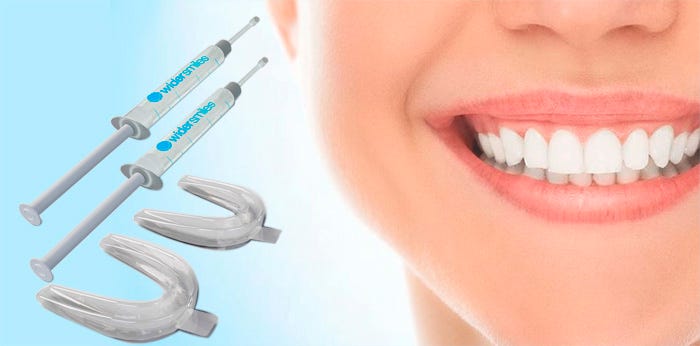Could it be
that the secret to white teeth is in your pantry? You’ve probably read
other articles and home remedies to make sure that having a dazzling
smile is as easy as getting a little baking soda. But is it really
useful for teeth whitening?

Is it effective? Is it dangerous?
If
you want a short answer, then it’s yes. A spoonful of baking soda is
healthy for your teeth. You can use it to whiten them and remove surface
stains. But is it really effective? Well, that depends on what we mean
by cash.
On
the one hand, baking soda may be the cheapest tooth whitening product
you can buy. In addition, a simple paste created with this element and
water is safe. However, it also has a downside: it is abrasive.
- While this abrasive nature of this ingredient is perfect for removing external stains from the enamel surface of your teeth, its level of abrasion can be too aggressive. Imagine cleaning a ceramic sink with an abrasive cleaner every day. Gradually, the surface would lose that initial shine. This is what happens with the enamel on our teeth.
- Brushing your teeth with baking soda can reduce the enamel layer on your teeth. There is a similar effect to the daily wear and tear that can be caused by fine sand in the structure of the rock or the hardest stone in nature.
- The thinner the enamel becomes, the more transparent it becomes, so we will see more of the dentin color. Dentin is usually grey or yellow in colour. We will therefore achieve a result that is totally contrary to what we want to achieve.
- On the other hand, even apart from the risk of weakening the enamel of your teeth, sodium bicarbonate does not produce a dramatic improvement in the shade of your teeth.
At
most, regular brushing with this component can whiten your teeth in one
or two shades. Compared to the 7–9 shades of treatment enhancements
such as professional teeth whitening, it may not be as cost effective.
Experts recommend baking soda as a safe and occasional substitute for toothpaste. However, as a whitening product, it is only good for occasional touch-ups.
An Alternative: The Whitening Gel with Carbamide Peroxide
Currently,
we have many methods to achieve white teeth, but not all of them are
equally effective. One of the components most commonly used by dentists
is carbamide peroxide. It is an extremely safe bleaching agent and does
not irritate the gums when used correctly. In fact, this ingredient is a
standard ingredient in many tooth whitening treatments.
Comentarios
Publicar un comentario